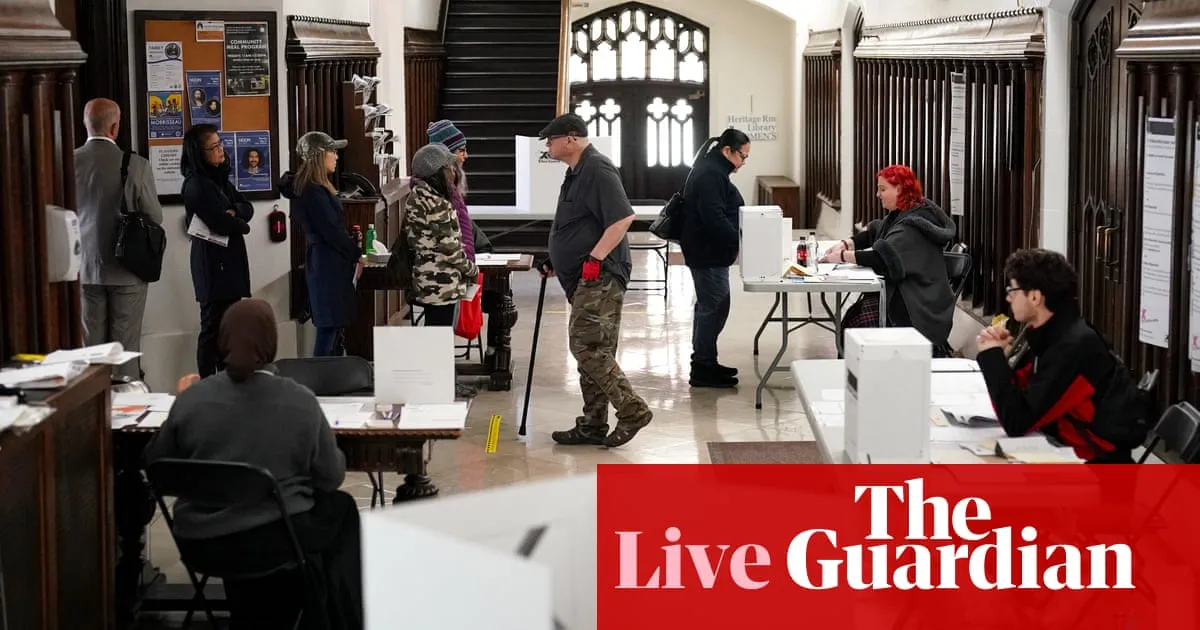
The city of Ottawa, Canada's capital, has recently faced an unprecedented wave of political turbulence, marked by internecine feuds, threats to Canadian sovereignty, and unexpected political comebacks. Yet, perhaps more challenging for residents has been the harshness of a prolonged winter, featuring spring snow squalls and persistently grey skies. On this pivotal election day, heralded by party leaders as the most important in a generation, many voters in Ottawa appeared more captivated by the pleasant weather than the political stakes at hand.
On a surprisingly sunny spring day, Liberal leader Mark Carney took the opportunity to cast his ballot in the Ottawa neighborhood he has called home for the past decade. Accompanied by his family, Carney walked past blooming daffodils and budding trees to reach a nearby polling station. Similarly, Pierre Poilievre, the Conservative leader, also exercised his right to vote in Ottawa, where he aims to defend the electoral district he has represented for seven consecutive terms.
In an act of protest against the country’s “first past the post” electoral system, activists have added an astonishing 90 names to the ballot. This has resulted in ballots stretching over a meter long, creating logistical challenges for Elections Canada and the scrutineers. With both Ontario and neighboring Quebec poised to be battlegrounds, both parties are keenly observing polling trends that suggest the Liberal Party is favored to secure victory.
Election Day in Canada coincides with a national day of mourning, following a tragic incident in Vancouver where 11 people lost their lives and many others were injured after a driver plowed into a crowd at a street festival. This festival, known as Lapu-Lapu Day, celebrates the Filipino chieftain who famously defeated Spanish forces in 1521. Many Canadians are taking time today not only to fulfill their civic duty by voting but also to mourn and visit makeshift memorials for the victims.
The Public and Private Workers of Canada (PPWC), a trade union based in British Columbia, has urged citizens to “get out and vote.” The union emphasized that the rights of Canadian workers are currently under threat. In a statement, they reflected on the growing influence of big corporations and wealthy elites on policy-making, often at the expense of working families. The statement urged citizens not to stay silent, warning that inaction could jeopardize hard-won gains. “If we act, we can elect leaders who will invest in social services and good-paying jobs, strengthen labor laws, tackle the climate crisis, and ensure dignity for every worker. The stakes are too high for any of us to sit this election out,” they said.
In an effort to engage voters, Prime Minister Mark Carney has been sharing hockey-themed campaign videos on social media. Using the phrase “Elbows up,” a hockey reference that symbolizes both self-defense and a call for Canada's sovereignty, Carney’s campaign aims to resonate with Canadian values. In one of his videos, he features actor Mike Myers in an ice hockey rink, further emphasizing his connection to Canadian culture.
As polls continue to close across the country, the anticipation for the results grows. Early indications from polling suggest that the Liberal Party may emerge as the leading party once again, with former Prime Minister Jean Chrétien expressing confidence in their victory. At 91 years old, Chrétien reflected on his past successes, hinting that tonight could mark another significant moment for the Liberal Party.
With significant stakes on the line, Ottawa voters are navigating a complex landscape as they cast their ballots in this crucial election. The combination of political turbulence, social movements, and cultural celebrations further enhances the importance of today’s vote.